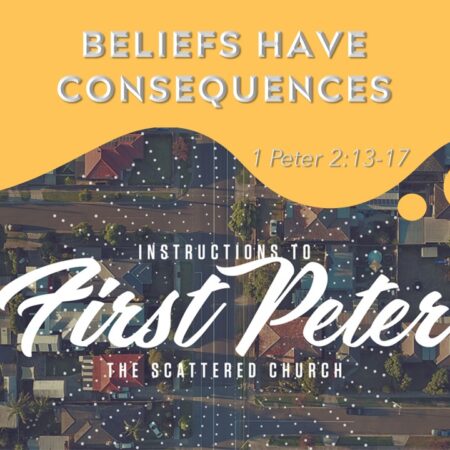1 Peter 2:13-17
Matthew 4:18-22
Acts 3:4-10; Acts 4:1-3; Acts 4:17-20;
Hebrews 12:1-2
Responsibility as the key to Human Identity.
Vaclav Havel writes: “Responsibility does establish identity, but we are not responsible because of our identity; instead we have an identity because we are responsible.”
Os Guinness in his book sub-titled:
Finding and Fulfilling the Central Purpose of Your Life”
No more urgent task faces the church today than the recovery of the authority of faith over the modern world. Those who imagine this can be done solely through strong institutions, more authoritative leadership, sharper formulations of orthodoxy, and ever more aggressive political movements will be disappointed. In a world as dynamic, flexible, and individualistic as ours, there can be no return to the authority of faith without a return to the understanding of calling as every follower of Jesus Christ ‘let’s God be God’ in practice. Luther again shows the way. Many people have commented on the fact that in Luther’s first hearing before the Emperor Charles V at the Diet of Worms in April 1521, he was visibly overwhelmed. Uncharacteristically hesitant, he asked for time ‘to think it over.’ Surely, his enemies thought, the simple monk and miner’s son was overawed in the presence of the brilliant young prince, heir of the long line of Catholic sovereigns, son of the house of Habsburg, lord of Austria, Burgundy, the Low Countries, Spain, and Naples. But that was not the reason. As his friends knew, and Roland Bainton later wrote in his biography HERE I STAND, what overpowered Luther was ‘not so much that he stood in the presence of the emperor as this, that he and the emperor alike were called upon to answer before Almighty God.’ Called as he had been, Luther feared God more than he feared the emperor. That is why he could say the next day, ‘My conscience is captive to the Word of God. I cannot and I will not recant anything, for to go against conscience is neither right nor safe. God help me. Amen.’ Faith in Christ will regain its decisive authority in the modern world only when we who follow Christ fear God more than we fear the powers and favors of modernity – when we hear God’s call and are so captured by his summons that we say with Luther, as the earliest printed reports add, ‘HERE I STAND, I CANNOT DO OTHERWISE.’
Os Guinness writes: “For at the threshold of the third millennium of its existence, the church of Jesus Christ confronts the greatest challenge it has ever faced. This challenge touches on behavior every bit as much as belief, yet it requires belief to inspire and stiffen that behavior. What is the challenge? From one side, followers of Jesus Christ confront in the modern world the most powerful culture in human history so far as well as the world’s first truly global culture. This culture has unprecedented power to shape behavior, and its damage to faith has already proved far greater than the malice and destruction of all the Christ-hating persecutors in history, from Nero to Mao Tse Tung. From the other side, followers of Jesus Christ confront a ‘global Mount Carmel’ as the followers of new gods and newly awakened old gods openly compete with followers of Christ to direct and guide the course of the modern world.”
“What we in Singapore want, is the modern world, not the West. We want the Asian way, not the American way. We want to follow Confucius, not Christ. Having given rise to the modern world, the Jewish and Christian faiths have now been reduced to ruins by the modern world. Asian countries should take a different path. They should pursue the best opportunities of modern capitalism, industrialized technology, and telecommunication within the setting of our own beliefs and cultures.”
Michael Horton “Beyond Culture Wars”
“Even in America, we are in exile. Our nation does not correspond to Israel in Scripture, but to Egypt. All nations are “Egypt” to the believer. It is a constructive exile, where we learn skills, pursue our callings, raise our families, participate in common life with unbelievers and enjoy fellowship with our follow-exiles. We may even have, hopefully, a Joseph or two in Washington every now and then, but it is always Egypt, always exile.”

